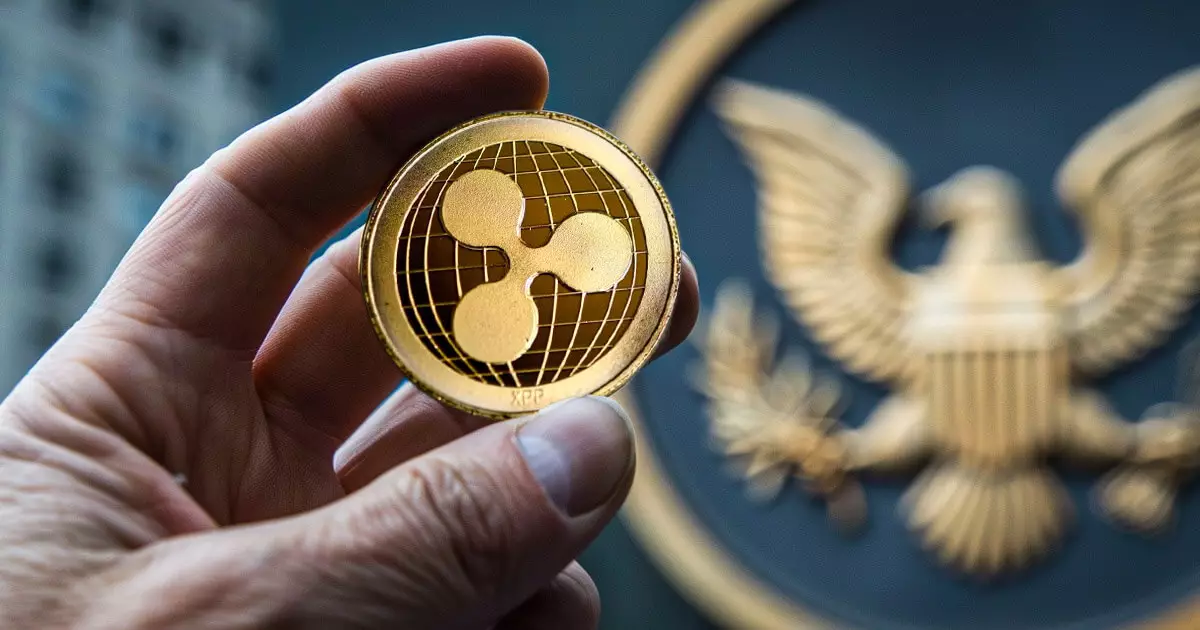As the legal battle between Ripple Labs and the United States Securities and Exchange Commission (SEC) drags on, recent developments are stirring significant conversation within the cryptocurrency community. On October 10, 2023, Ripple Labs filed a notice of cross-appeal to the U.S. Court of Appeals for the Second Circuit, responding directly to the SEC’s own appeal earlier this month that challenges a landmark ruling in Ripple’s favor.
The ongoing legal conflict traces its roots back to December 2020 when the SEC initiated legal proceedings against Ripple Labs, claiming that the company had engaged in the unlawful sale of unregistered securities through its XRP token—a charge amounting to a staggering $1.3 billion. This marked a watershed moment in the regulation of cryptocurrencies in the U.S., as the outcome could have broad implications for how digital assets are classified and regulated.
In July 2023, the situation took a significant turn when U.S. District Court Judge Analisa Torres ruled partially in favor of Ripple, asserting that while institutional sales of XRP did indeed violate securities laws, sales made to retail investors did not. This distinction created a crucial legal precedent that raised hopes among many in the crypto space that not all token sales would automatically be deemed securities offerings.
Ripple’s cross-appeal is strategically designed to contest the SEC’s appeal and seeks to challenge the court’s conclusion regarding the $125 million civil penalty imposed for Ripple’s institutional sales of XRP. While the penalty was considerably less than the $2 billion initially sought by the SEC, it still remains a substantial burden on Ripple and denotes the regulatory challenges the firm continues to face.
Stuart Alderoty, Ripple’s chief legal officer, has publicly declared that the cross-appeal aims to ensure “nothing is left on the table.” His assertion highlights the company’s intention to address every aspect of the ruling that could have negative repercussions on its operations. Alderoty also anticipates that the SEC will argue that XRP transactions on exchanges and the distribution of tokens to employees and developers should be classified as securities, a claim Ripple is poised to contest vigorously.
The Broader Context: Regulatory Clarity vs. Chaos
Ripple CEO Brad Garlinghouse has been vocal in his critique of the SEC, accusing the regulatory body of creating chaos rather than providing much-needed clarity to the burgeoning cryptocurrency market. This sentiment resonates with many industry insiders who advocate for a regulatory framework that fosters innovation without stifling growth through punitive measures.
Garlinghouse believes that the SEC’s persistent legal maneuverings are indicative of a broader “regulation-by-enforcement” tactic. His comments underscore the overarching anxiety within the crypto industry regarding how decentralized projects will navigate the convoluted regulatory landscape shaped largely by the SEC’s actions. As other crypto ventures watch the outcome of this case closely, Ripple’s fight could shape the regulatory approach for years to come.
Looking Ahead: What’s at Stake?
The merging of both the SEC’s appeal and Ripple’s cross-appeal into a single case will undoubtedly extend the legal proceedings, prolonging uncertainty within the crypto ecosystem. The decisions made by the appellate court will likely reverberate far beyond Ripple, potentially impacting future regulations and litigation involving other cryptocurrency firms.
As the appeals process unfolds, industry experts are anticipating a potential shift in how digital assets are classified and the standards by which they are regulated. Ripple’s insistence on fighting back against the SEC may embolden other companies facing similar scrutiny, leading to an overall push for clearer regulatory guidance.
Ripple’s ongoing legal saga encapsulates a critical juncture in the relationship between cryptocurrency firms and regulatory bodies. The implications of this case extend far beyond Ripple Labs, as they could set significant precedents for the entire blockchain ecosystem, illuminating the urgent need for a balanced approach to cryptocurrency regulation that encourages innovation while safeguarding investors. The coming months could determine not just the fate of Ripple, but the future of the entire cryptocurrency industry in the United States.

